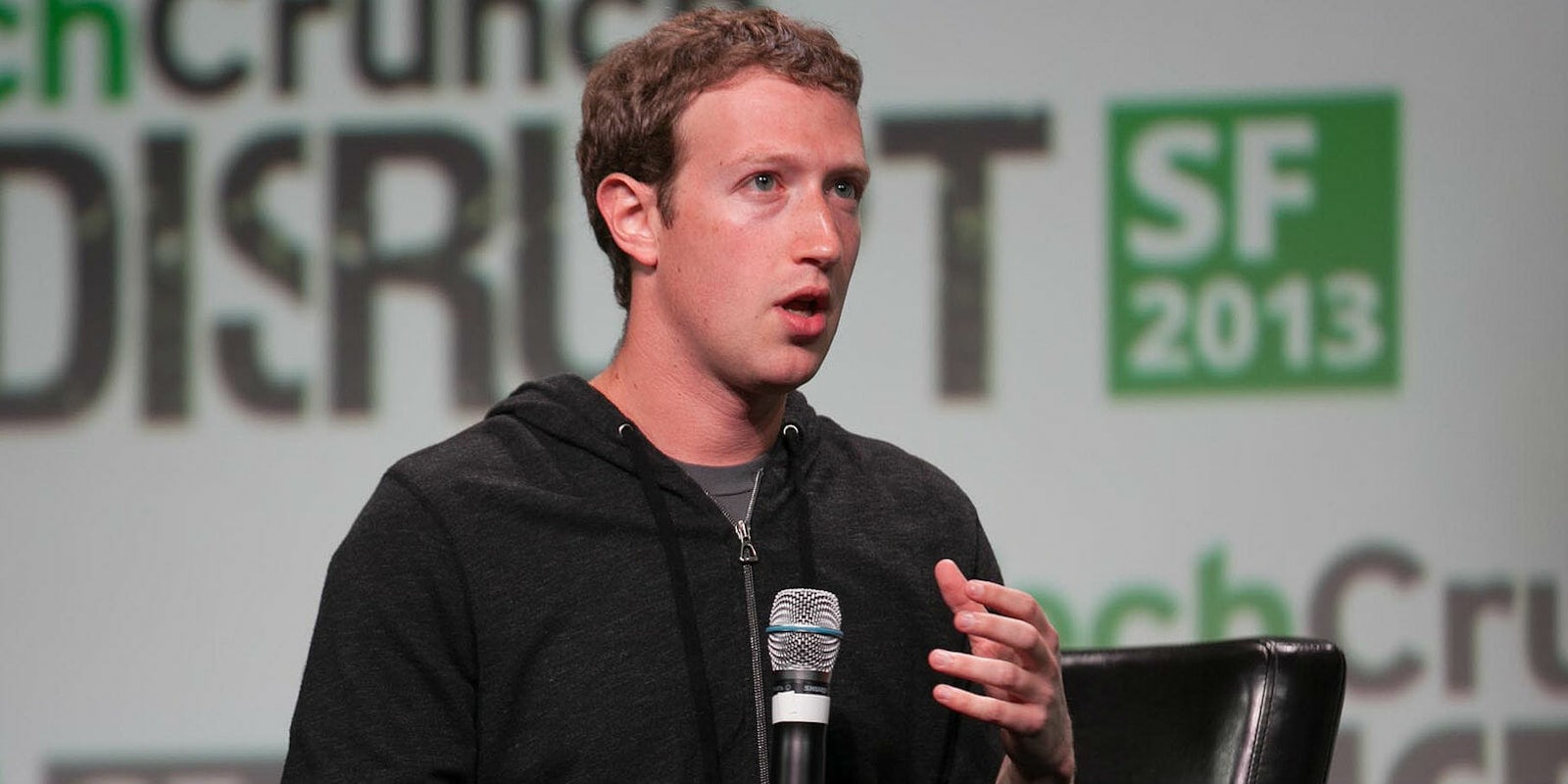Facebook has admitted to deleting personal messages sent by Mark Zuckerberg after recipients reported them mysteriously disappearing from their inboxes.
Numerous sources speaking to TechCrunch described how old messages sent by Zuckerberg no longer appear in Messenger but their own messages remain. When asked about the suspicious behavior, Facebook came clean, explaining Zuckerberg’s messages were deleted for security reasons following the devastating 2014 Sony Pictures security breach, when emails from top executives were leaked.
“After Sony Pictures’ emails were hacked in 2014 we made a number of changes to protect our executives’ communications,” a Facebook spokesperson told TechCrunch. “These included limiting the retention period for Mark’s messages in Messenger. We did so in full compliance with our legal obligations to preserve messages.”
But some people are angered that Facebook never disclosed the policy and feel they are being treated unjustly since there’s no similar tool for regular users. While users can send disappearing messages on Messenger à la Snapchat, they can’t retroactively delete their own messages from other people’s inboxes. The special permission given to Zuckerberg has been applied to messages he sent several years ago, whereas messages sent from regular users remain in recipient’s inboxes unless they’re manually deleted.
Deleted messages don’t even appear when a user downloads a record of their data history. Interestingly, newer messages from Zuckerberg still remain in inboxes along with some conversations prior to 2014. This suggests Facebook has been selectively choosing what to delete, perhaps to avoid any potential embarrassment. As TechCrunch points out, in 2010, Zuckerberg was caught calling people “dumb fucks” in a private conversation with a friend who said he’d obtained the personal information of some 4,000 Harvard attendees.
Zuckerberg later owned up to the blunder in an interview with the New Yorker. “If you’re going to go on to build a service that is influential and that a lot of people rely on, then you need to be mature, right? I think I’ve grown and learned a lot,” he said.
You would expect Facebook to use an automated system to delete all of Zuckerberg’s messages if this was done for security purposes. Even if the reason behind the exception holds up, Facebook would have done well to inform affected users, especially since its oft-referenced terms of service only indicate that a message can be deleted if it contains content that violates the community standards.
The disclosure of this concerning behavior couldn’t come at a worse time for Facebook. The company is still trying to grapple with its privacy issues after the world found out political data firm Cambridge Analytica harvested the personal information of 87 million users to influence their vote. The scandal has put Facebook under an immense amount of pressure from regulatory agencies and worried users. In response, Facebook implemented significant changes to its platform, including rewriting its Terms of Service and Data Use Policy and allowing users to delete third-party apps in bulk.
But no matter how hard it tries, the company can’t seem to get itself out of its slump. For every measure taken to reassure users, another problem arises. Last month, users who downloaded their data history ran across personal information, including their contacts, SMS messages, and call logs. It turns out, Facebook legally collected the data using a so-called “opt-in” feature.
On Wednesday, we learned via a Bloomberg report that Facebook uses automated tools to scan your messages on Messenger for links and photos that violate its terms, a safety measure some may deem a serious breach of privacy. Most recently, Zuckerberg told reporters that the 2.2 billion people who have a Facebook account should assume they’ve been compromised.
We should learn more about Facebook’s troubling practices when Zuckerberg testifies before Congress next week.
Update 1:50pm CT, April 6: A Facebook spokesperson told the Daily Dot the company is sorry it hasn’t made its message deleting tool available to a wider audience. It is now working to bring the feature to more users but said it will “take some time.” Until then, messages from Facebook executives—Zuckerberg included—will not be deleted from inboxes.
“We have [internally] discussed this feature several times. And people using our secret message feature in the encrypted version of Messenger have the ability to set a timer—and have their messages automatically deleted. We will now be making a broader delete message feature available,” the spokesperson said. “This may take some time. And until this feature is ready, we will no longer be deleting any executives’ messages. We should have done this sooner — and we’re sorry that we did not.”


